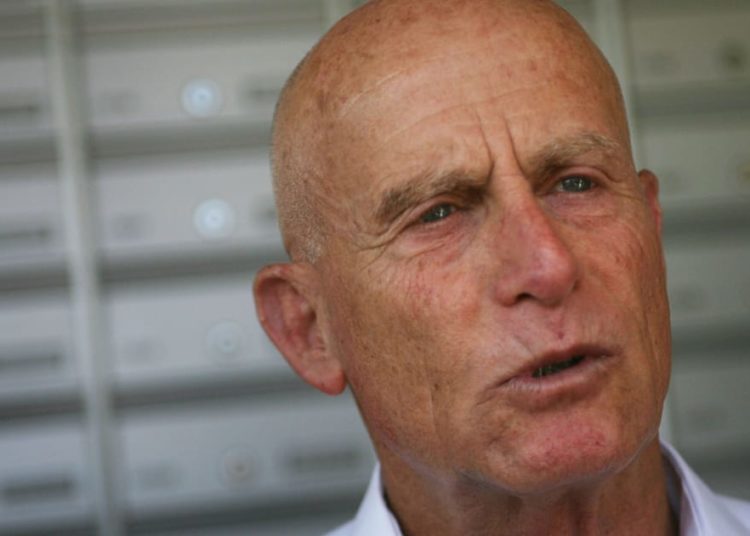Now entering its second month and with U.S. President Donald Trump exerting enormous pressure to maintain it, the Israel-Hamas cease-fire looks like it will hold. Tens of thousands of reservists have returned home to their families and jobs, the sirens warning of incoming missiles have gone silent, and the last of the hostages are back. Israel’s postwar era can now begin.
A postwar accounting of this long and bloody conflict should also logically be getting underway. And with that accounting may come a change in direction, perhaps away from the illiberal policies of Israeli Prime Minister Benjamin Netanyahu or, less likely, a new openness toward an accommodation with the Palestinians.
The most obvious way for that process to begin would be the formation of a state commission of inquiry into the failures that led to the Oct. 7, 2023, massacre and the war that followed. That is the traditional way that Israel reaches what amounts to a quasi-official verdict on who is to blame for national failures—like the Yom Kippur War—and why they happened. Netanyahu, who has yet to own up to any responsibility for Oct. 7, has refused to consider such a commission. The other arena for debating the war and its consequences, as well as setting the country’s direction for the years ahead, would be a general election, which, by law, must be held no later than October 2026. The prime minister seems no less determined to delay that reckoning, too.
It is hard to imagine that the war won’t lead to fundamental change. It was the longest in Israel’s history and one of the deadliest, taking some 2,000 lives, split almost evenly between soldiers and civilians. The lengthy captivity of the hostages held by Hamas and the government’s perceived indifference to their fate were a source of prolonged anxiety for the nation. International condemnation of the war was unprecedented and was often felt personally by Israelis, who suffered harassment while traveling abroad. The horrific Palestinian death toll and vast destruction in Gaza didn’t bother the vast majority of Israelis, but it may now prick their conscience and raise uncomfortable questions as their anger cools.
Yet, if the opinion polls reflect the Israeli public’s thinking, then the cease-fire has not yet had a political impact. The handful of polls taken since the cease-fire went into effect show no more than a tiny bump for the pro-Netanyahu bloc, comprising his Likud party plus two far-right and two ultra-Orthodox (Haredi) factions. Nor has the opposition seen any dramatic change in its overall support, which puts it ahead of the coalition but short of a Knesset majority without the help of Arab-led parties. Indeed, despite all that has happened over the past two years and the changing fortunes of individual parties, the polls show that the balance of support between the two blocs has barely changed from the weeks before Oct. 7.
Given his poll standings, Netanyahu would probably prefer to delay elections until next October and probably hopes that the public will somehow forget his government’s responsibility and wartime performance. But the odds of keeping his government afloat that long are looking increasingly slim.
In protest over the government’s failure to pass legislation exempting their community from the draft, the Haredi parties of United Torah Judaism and Shas have quit the coalition, leaving the government without a Knesset majority. The coalition’s far-right Religious Zionism and Otzma Yehudit parties have grown increasingly obstreperous since the cease-fire began, most notably ignoring Netanyahu’s objections to vote in favor of a bill that called for the annexation of the West Bank.
Even if he decides to soldier on as the head of a minority government, Netanyahu faces a March 31 deadline to pass the 2026 budget or, by law, the government must dissolve and call elections within 90 days. Netanyahu has unparalleled political skills, but he will struggle to put out all these fires.
From his point of view, his options are not very good. One would be to leave the political scene with his honor mostly intact by negotiating a presidential pardon for the bribery, fraud, and breach of trust charges that he is now being tried for in exchange for agreeing to retire from politics. Netanyahu’s allies have been lobbying for a pardon, probably at his urging, albeit without his agreement to leave politics. Still, the odds of him getting one are poor—and even poorer without the quid pro quo.
Without Netanyahu at the helm, the Likud party would be left adrift. Under his leadership, the party has become a collection of often clownish yes-people, and none of them are heir-apparent material. Asked in a poll who should lead the Likud party if not Netanyahu, nearly half said that they weren’t sure or didn’t like any of the options given. With the backing of just 10 percent of the respondents, former Mossad chief Yossi Cohen was the top choice, but he announced this week that he wasn’t interested. All of the others have single-digit support.
Assuming Netanyahu stays at the helm, his task will be to convince Israelis that the war ended in “total victory” and that he wasn’t strong-armed into a cease-fire by Trump. The prime minister has been promoting that message since news of Trump’s plan first surfaced, but Hamas’s reemergence in Gaza and Trump’s own messaging have undercut both claims. Polls show that Israelis aren’t buying Netanyahu’s version of events. Another tactic that he is pursuing is to tilt the election more in his favor by, among other things, deterring Arab votes.
The far right, meanwhile, is flailing about for ways to appear strong and ideological without a war to cheer on.
One tactic has been to insist the war will start up again soon, as it did after the last cease-fire in January. But this time, the White House seems much more committed to permanently ending the war than before. The far right’s plan B is to fight harder for West Bank annexation and other pet causes. Religious Zionism leader Bezalel Smotrich has been talking up the idea more than ever, as if Trump hasn’t vetoed the initiative. On Oct. 23, Smotrich told the Saudis that they can “keep riding camels in the Saudi desert” if they insist on a Palestinian state as the price for normalization.
There is also the growing risk that extremist settlers will try to foment a war in the West Bank as a substitute for the one in Gaza by stepping up their attacks on Palestinians. There is some evidence that this is already happening. But as much as these tactics may excite the right-wing base of the two parties, they are unlikely to expand it.
The ultra-Orthodox parties are in no less trouble. Netanyahu would like to meet their demands and formally exempt their community from military conscription, but the Gaza war has required so much from soldiers and reservists that the idea of giving one community a pass has become politically radioactive. Fearing the consequences of an election, the parties have kept one foot in the coalition and aided it just enough to prevent its collapse. But that is not a sustainable situation.
For all the coalition’s woes, the opposition remains divided and leaderless. Naftali Bennett, a pragmatic rightist who briefly led a hodgepodge government of right- and left-wing parties in 2021-2022, is angling to be the one from the opposition to replace Netanyahu. In his favor is the fact that his newly formed Bennett 2026 party is way ahead of the other opposition parties in the polls, but his support is believed to be unstable, and voters could shift their loyalty to another party as election day approaches. In any event, even if Bennett succeeds in becoming the anti-Netanyahu bloc’s agreed leader, he will struggle to maintain a gaggle of parties united only by the desire to topple Netanyahu. Indeed, the opposition’s weakness may be the best opening Netanyahu has to remain in power.
The opposition doesn’t so much offer a different vision of Israel as it does a denial of what the Netanyahu government is and has done—its politics of division, its assault on the judiciary and institutional norms, and its corruption and incompetence. The result is that an election that Israelis believe could be of historical importance for the country’s future may be less of a turning point than a continuum. Netanyahu may even return to power.
Could the election’s failure to lead to change cause a political explosion, perhaps in the form of even wider protests? If so, what would the protesters demand? There are no easy answers to those questions.
On the one hand, any discontent may be dampened by the fact that Israel has emerged from the war militarily stronger and more secure. Hamas, Hezbollah, and Iran are no longer the threats they once were. Israel’s economy weathered the fighting reasonably well. Critically, polls show that trust in most institutions remains high. As an election tactic, Netanyahu may try to renew his prewar assault on those institutions, but that may actually backfire in postwar Israel.
On the other hand, the war was felt personally by almost everyone—by the loved ones of the dead and the hostages, by people whose lives were interrupted by months of reserve duty, and by families forced to leave their homes and communities in the war zones. It might take time for fundamental questions and grievances to surface, but it seems inevitable.
The 1973 Yom Kippur War and the economic slump that followed were equally traumatic for Israelis, but it took another four years for voters to punish the political echelon for its blunders. In the 1977 elections, the Labor Party, which had ruled for nearly three decades, lost its majority as Israel turned more right wing, religious, and capitalist. Could the war in Gaza precipitate a similar change in Israeli society? And, if so, in what direction? Israelis themselves may not know the answer yet.
The post The War Is Over for Israel, but the Accounting Has Yet to Begin appeared first on Foreign Policy.




